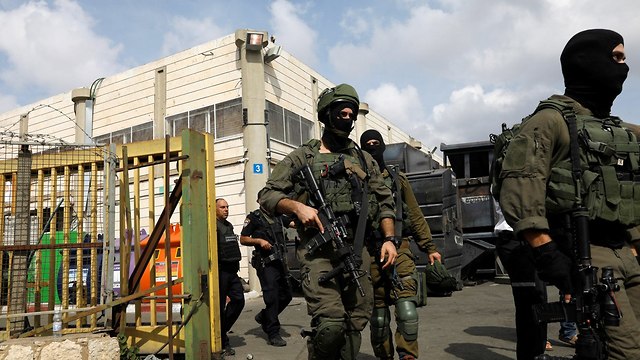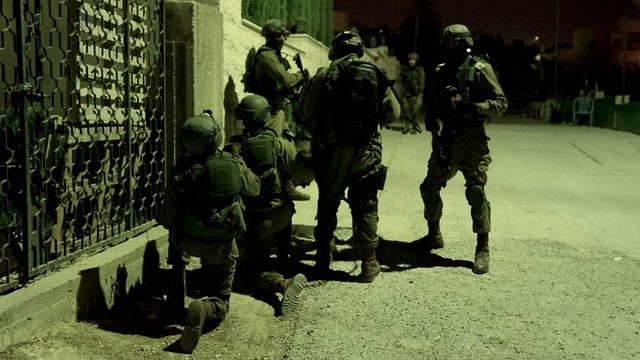Analysis: The IDF must reexamine the security arrangements at the industrial zones and find out how the Barkan terrorist got a rifle in despite metal detectors. And unless the incitement in the Palestinian Authority stops, the West Bank might blow up even before Gaza.
Much like the terrorists who carried out the attacks in Itamar and Halamish, the terrorist who carried out the attack Sunday at the Barkan industrial zone had no past record of terror activity. Seemingly, he checks all the boxes of the lone wolf terrorist: He is not affiliated with any terror organization, has no past record of terror activity, and he has a work permit and a steady job. But unlike previous cases, the Barkan terrorist’s conduct was professional, and it is safe to assume he received guidance of some sort.
The terrorist walked into the factory with a rifle in his bag. The initial investigation found the bag went through a metal detector at the entrance to the industrial zone, and it remains to be seen if he had help and if the rifle was waiting for him on the other side of the security check.
The fact the terrorist handcuffed the secretary could indicate he planned to take her hostage. So in addition to the cruelty that characterized this terror attack, we must remember it could’ve ended far worse.

Immediately after the attack, the IDF and Shin Bet launched a wide-scale manhunt for the terrorist, bringing in the best of the Special Forces units. Since the terrorist is armed, it’s safe to assume the search won’t end with an arrest, but rather with an exchange of fire, which would require the expertise of highly-skilled fighters. It is possible, however, the terrorist would choose to turn himself in to the Palestinian security services—and through them to the IDF—to avoid getting killed.
Over 30,000 Palestinians from the West Bank have work permits for the different industrial zones in the territories or for the Israeli communities. To this day, only a few—less than ten—took advantage of the situation to carry out terror attacks (among them was the attack last month in Gush Etzion), so Israel’s policy of differentiating between terrorists and the uninvolved population has proven itself, and that is also why the IDF did not impose a closure on the terrorist’s village.

Despite the grave attack, the IDF will seek to maintain this policy and the coexistence in the industrial zones, which aids both the Palestinian and Israeli economy. But at the same time, the army must reexamine the security arrangements at the industrial zones to prevent such attacks from repeating in the future. The security checks may be done by a civilian company, but it is the IDF’s responsibility to prevent weapons from getting into the industrial zones.
Defense officials are concerned the attack would inspire copycats, who would try to do something similar amid the current climate in the territories. IDF Chief of Staff Gadi Eisenkot has already warned that the situation was explosive and the matter has been brought up in a situation assessment on Thursday.
The IDF deployed two additional battalions to the Judea and Samaria Division on Sunday to prevent copycat attacks, but if Mahmoud Abbas continues in the same vein, the incitement in the Palestinian Authority continues and the Palestinian security forces don’t help the IDF to thwart terror attacks, then the West Bank might ignite even before Gaza.
As reported by Ynetnews
